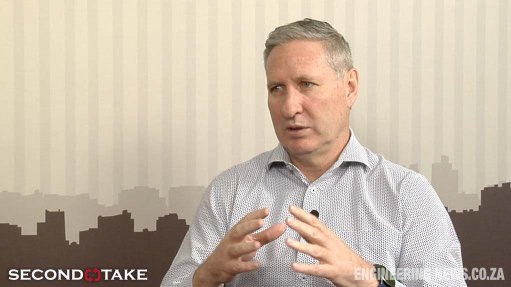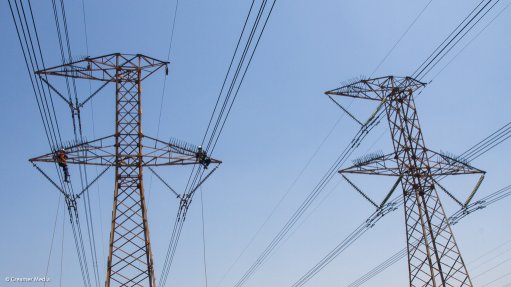How can corporations help fight SA’s pervasive crime syndicates?


Zaakir Mohamed. Partner: Head of Corporate Investigations & Forensics at CMS South Africa
This article has been supplied.
By Zaakir Mohamed. Partner: Head of Corporate Investigations & Forensics at CMS South Africa
It seems like you can hardly open a South African news website these days without finding out about some or other new criminal syndicate. They have infiltrated almost every sector of the South African economy, from mining, to construction, and transport. It’s additionally becoming apparent that many of these syndicates have international reach.
Those syndicates have a massively detrimental impact on the South African economy too. Illegal miners alone are estimated to cost that sector R7 billion a year. That’s to say nothing of the costs to the environment (through poaching syndicates, for example) and human life (according to the Institute For Security Studies, organised crime has played a significant role in South Africa’s increased murder rate in recent years).
On the face of it then, it would seem that South Africa has a massive uphill battle when it comes to tackling organised crime syndicates. Winning that battle will mean active participation from a broad cross-section of society, including big corporates.
How fraudsters and money launderers infiltrate corporates
In order to understand how South African corporates can help in the fight against organised crime syndicates, it’s important to first look at how those syndicates infiltrate businesses in the first place.
While there have been instances of big corporates participating directly in fraud and corruption, as was revealed during the State Capture Commission, organised crime syndicates typically take a less direct approach when it comes to infiltrating organisations. One of the most common ways is to use companies as a conduit for money laundering.
Let’s take a poaching syndicate, for example. They might have buyers offering them significant amounts of money for rhino horn or lion bones. But in order to be able to use that money without raising suspicion from local and international authorities, they need to first launder it through a legitimate business.
That’s typically where large financial institutions and other businesses come into play. One way they’d do so is by infiltrating a business, usually through one or more existing employees. Sometimes that’s through a mix of coercion and bribery, but even a negligent employee who doesn’t properly adhere to an organisation’s anti-fraud and corruption practices can be used as an infiltration point. It can be as simple as processing certain documents and overlooking specific procedures, allowing them to get away with the laundering.
While junior-level employees are an obvious target on this front, the more senior the employee is the more a syndicate is likely to get away with. That’s because senior employees are less likely to have their work checked.
Building the right culture, conducting thorough audits
In order to avoid those kinds of scenarios, it’s vital that organisations set a culture of zero tolerance for fraudulent conduct from the top down. Your senior managers and directors, therefore, don’t just have to act ethically, they also have to be seen to do so.
It’s additionally imperative that any incident of fraud, no matter how small, not be brushed under the carpet. No matter how junior or senior an employee is, they should know that if fraud is uncovered, it will be investigated and prosecuted.
At the same time, you also need to create a culture of active whistleblowing within the organisation so that employees feel comfortable and safe raising issues. There have been far too many instances where South African whistleblowers have been left to hang out and dry by both the state and their employer for doing something that we all should in the face of fraud and corruption. In the most extreme instances, this can leave them having to flee the country or face being killed (as happened to former Gauteng Provincial Department of Health worker Babita Deokaran).
That doesn’t just mean not shunning an employee who acts as a whistleblower either. Organisations must take active steps to protect whistleblowing employees from any threats and dangers they might face. After all, if an employee has been put under duress by a crime syndicate and comes forward, they’re actively protecting the organisation. It also makes it much easier for the organisation to proactively manage the crisis than if the employee didn’t feel satisfied and went to the media instead.
Another proactive step organisations can take is to conduct regular lifestyle audits on employees and ensure that it knows what red flags to look out for. Taking that kind of action is especially important right now, at a time of economic difficulty, when the temptation to take financial assistance is higher than it otherwise might be. Of course, if you see an employee suddenly driving a car they couldn’t possibly afford on their salary, it doesn’t necessarily mean they’re engaged in fraudulent activities but it’s still a red flag worth keeping an eye on.
Leading the change
Ultimately, South African corporates cannot afford to simply sit back and hope that authorities will eventually deal with the organised crime syndicates that represent such an existential threat to the economy. Organisations will increase their mitigation measures against this threat the more difficult they make it for those crime syndicates to infiltrate their organisations and the more protection they provide to people who blow the whistle on any infiltration attempts.
This isn’t a problem with any single solution. But because corporates represent such an important conduit, any efforts they make at breaking the back of organised crime syndicates will be vital.
Article Enquiry
Email Article
Save Article
To advertise email advertising@creamermedia.co.za or click here
Comments
Press Office
Announcements
What's On
Subscribe to improve your user experience...
Option 1 (equivalent of R125 a month):
Receive a weekly copy of Creamer Media's Engineering News & Mining Weekly magazine
(print copy for those in South Africa and e-magazine for those outside of South Africa)
Receive daily email newsletters
Access to full search results
Access archive of magazine back copies
Access to Projects in Progress
Access to ONE Research Report of your choice in PDF format
Option 2 (equivalent of R375 a month):
All benefits from Option 1
PLUS
Access to Creamer Media's Research Channel Africa for ALL Research Reports, in PDF format, on various industrial and mining sectors
including Electricity; Water; Energy Transition; Hydrogen; Roads, Rail and Ports; Coal; Gold; Platinum; Battery Metals; etc.
Already a subscriber?
Forgotten your password?
Receive weekly copy of Creamer Media's Engineering News & Mining Weekly magazine (print copy for those in South Africa and e-magazine for those outside of South Africa)
➕
Recieve daily email newsletters
➕
Access to full search results
➕
Access archive of magazine back copies
➕
Access to Projects in Progress
➕
Access to ONE Research Report of your choice in PDF format
RESEARCH CHANNEL AFRICA
R4500 (equivalent of R375 a month)
SUBSCRIBEAll benefits from Option 1
➕
Access to Creamer Media's Research Channel Africa for ALL Research Reports on various industrial and mining sectors, in PDF format, including on:
Electricity
➕
Water
➕
Energy Transition
➕
Hydrogen
➕
Roads, Rail and Ports
➕
Coal
➕
Gold
➕
Platinum
➕
Battery Metals
➕
etc.
Receive all benefits from Option 1 or Option 2 delivered to numerous people at your company
➕
Multiple User names and Passwords for simultaneous log-ins
➕
Intranet integration access to all in your organisation



















